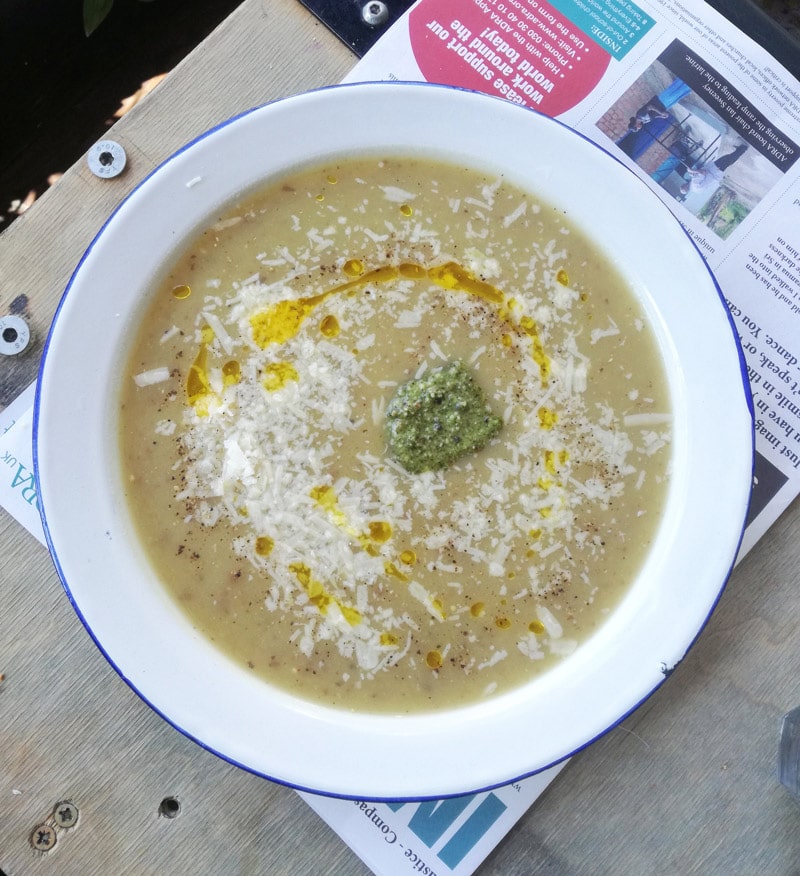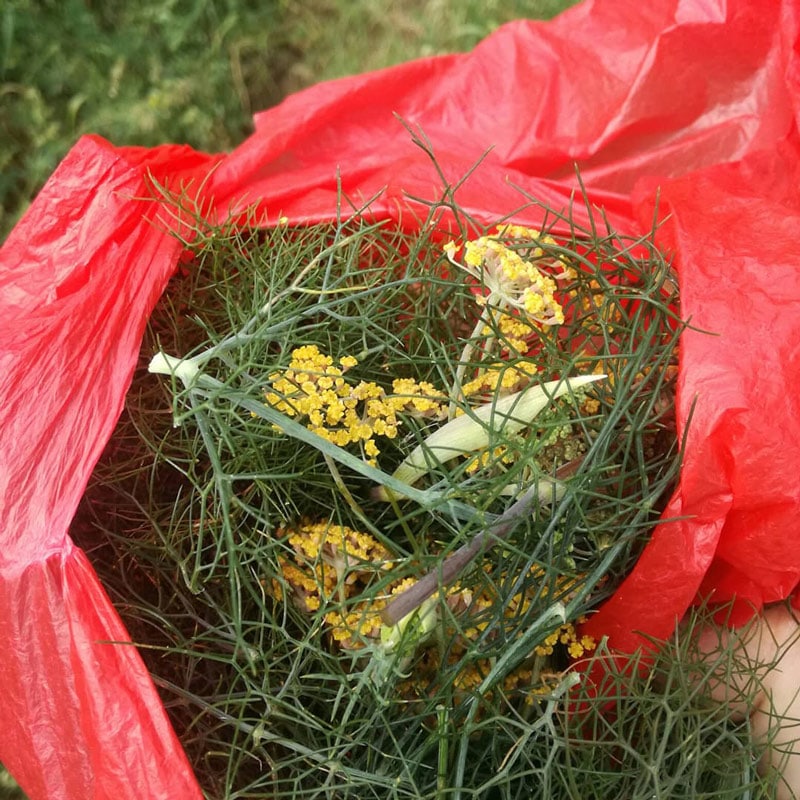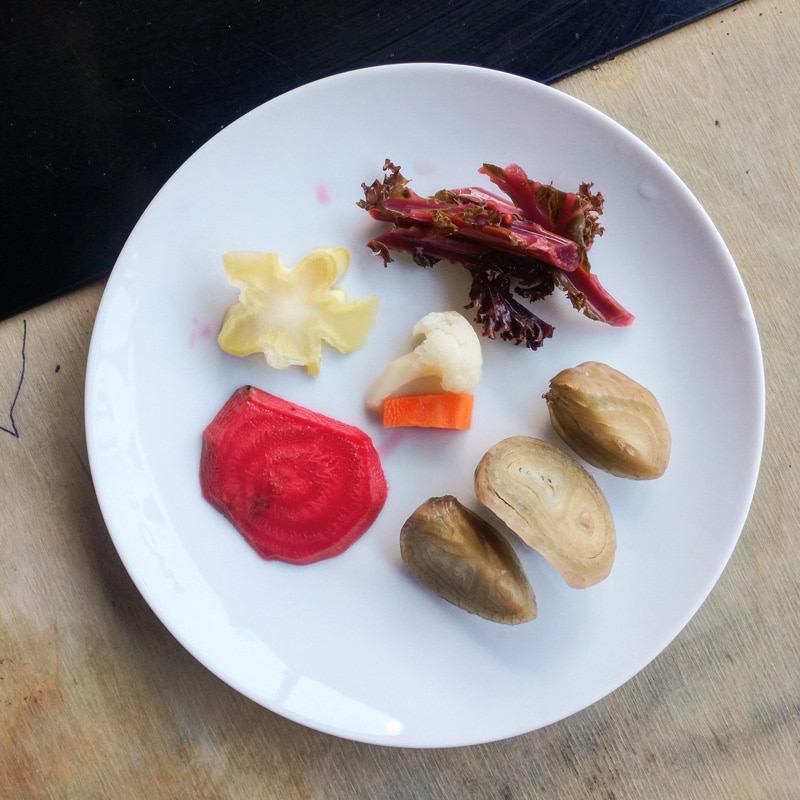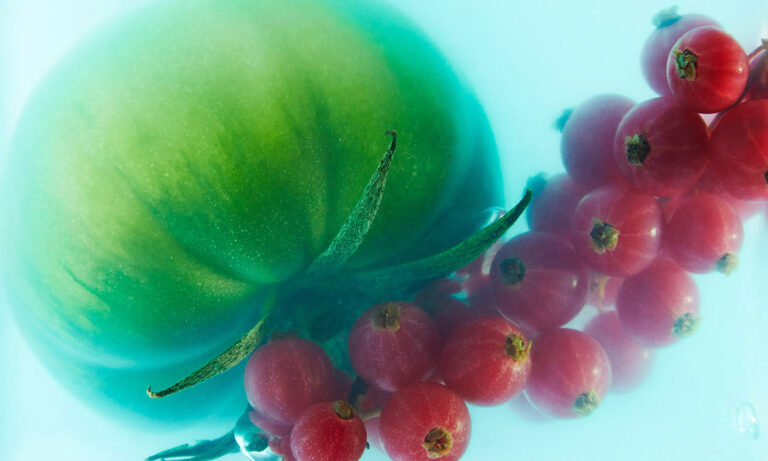10 festive food waste reduction tips you’ll need this Christmas
As our social calendars continue to fill up with work parties, ‘friendsmas’ roasts and gorging ourselves on the sofa, it may seem that leftover food and creating debris is unavoidable. There are always hundreds of roasties, litres of gravy, and bowls of sprouts left untouched.
The Waste & Resources Action Programme (WRAP) states that between 30 and 50 per cent of all food produced globally goes straight into landfill, and in the midst of the climate crisis, it’s vital we take responsibility for and make fundamental changes to our consumption habits. Read on for ten absolute crackers to suit a plethora of scenarios:
1. Take a lunch box everywhere
A solid opener, no-shame scavenging—stick your leftover roast potatoes in there, your mum’s half-eaten dessert, the rest of the cheeseboard no one needed. It’s an imperative bit of kit, and if someone looks at it disapprovingly, it’s only because they’re jealous they didn’t think of it.
2. Classic leftover meals
So, you’ve now got a huge box of surplus meat and vegetables, then what? Forgotten over the last two generations, thrifty post-war meals using leftovers were national staples before the global food market made us all lazy and nutrient-deficient. Here are a few delicious options you could cook up after a big Christmas do.
– Toad in the hole (Yorkshire batter and sausages traybake)
– Bubble and squeak patties (mashed vegetables and spuds in fried cakes)
– Cheese and braised red cabbage toastie (with cranberry sauce)
– Turkey pasta bake (with creamy mushrooms and thyme)
– Broccoli and stilton soup (add a little gravy to the stock)

3. Love thy neighbour
If you live next to or near someone who you think might not be able to cook for themself, be a darling, and bring them a hot meal. It’s no effort to plate up something from your leftovers and microwave it for them. If you’re feeling extra cute, leave a few After Eights and a cuppa tea.
4. Sprouts are boss
Being a former avoider, I’m now very much a Brussels lout. These incredible flavour orbs are related to cabbage, aid enzymatic digestion and boost blood circulation. It’s best to peel bad leaves off all the uncooked sprouts you have left in one go, as it’s really boring. Try shredding in a sprout, apple, fennel bulb and caraway seed slaw with a honey and mustard dressing, or stir fry with onions, mushrooms and cream for a toast topping.
5. Pudding for breakfast
This one is for the heads. We all know cold spuds is a legitimate morning snack, but what about a slab of gateau with your first coffee? Victoria sponge and builder’s tea? Christmas pudding with a herbal brew or lemon cheesecake and OJ? After a hefty sugar punch to complement the caffeine, prepare for a pre-lunch crash.
6. Wonderful wild herbs
Wonderful for so many reasons, including the fact that they’re very hardy so they grow absolutely everywhere, are easy to identify, and can help you spend no money and reduce your plastic consumption. Learn to harness their incredible flavours, because they lift everything—add chopped rosemary to roasting potatoes or a sprig of thyme in your gin and tonic, and steep mint and fennel in a pot after dinner for a digestive tea. Forage responsibly; don’t pick unless you’re certain, and never strip or uproot a plant.

7. Pickle it
Vegetable skins are delicious, packed with fibre and, if grown organically, host beneficial bacteria and minerals from the soil. If you can’t convince the chef to keep the skins on your carrots, don’t despair. Stealthily make this sour side dish; pickle with 150ml vinegar, 150ml water, 2 tbsp sugar and 1 tbsp salt, star anise, chopped garlic and a bay leaf. Heat on the hob until sugar melts, then add to skins in a bowl. They only need an hour to marinate, then whip them out at the dinner table and blow their tiny minds.

8. Surplus citrus
There will undoubtedly be tonnes of clementines in your vicinity, so nab some, slice thinly on the horizontal and dry on a radiator to create some beaut, fragrant decorations. String them together like a boss.
9. Minesweeping
What about all the half-drunk bottles of wine and warm lager dregs littering your kitchen? Don’t throw any of it down the sink, it’s a precious resource—naturally fermented liquids with deep umami and sour flavours. Stick them all in a labelled bottle in the fridge to store and use them to build a tasty base for a gravy or a stock. If you’re feeling experimental, add a raw vinegar mother and store for six weeks to turn this waste product into a delicious cupboard essential.
10. Local resource redistribution
There’s no need to eat every chocolate that enters your periphery; take those spare sweets to your local hostel or homeless shelter. And if you have any cooking or washing-up skills at all, you could be in demand. Ring ahead to see if they’re serving hot meals over the holiday period and whether they might benefit from your time and expertise.





